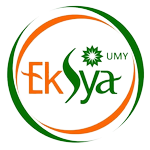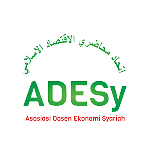A Bibliometric Analysis of Islamic Philanthropy
DOI:
https://doi.org/10.18196/jiebr.v3i1.109Keywords:
Bibliometric, Islamic Philanthropy, Philanthropy, Biblioshiny-R, VOSviewerAbstract
This study aims to retrieve journal articles related to Islamic philanthropy over a span of 16 years and propose new pathways for future research. The study involved a bibliometric analysis of 122 publications on the subject registered in the Scopus database from 2007 to 2023. The bibliometric procedure evaluates research performance and progress within an international impact framework, while Biblioshiny-R and VOSviewer visualize overall research trends in Islamic philanthropy. The results of the study show that Indonesia is the country with the most publications related to Islamic philanthropy. Hilman Latief and Fauzia Amalia are the two leading authors in this field based on the total number of publications and citations. The Journal of Muslim Philanthropy and Civil Society is the journal that has published the most papers on this topic. Some of the author's most recent keywords include "islamic charity; muslim philanthropy; sadaqa; ethics of giving; needy; philanthropy; Islam; zakat; charity; muhammadiyah; islamic; sdgs; food security; wealth," which shows a strong current interest in the study of Islamic philanthropy. This paper is useful to academics, organizations, and policymakers in understanding the general picture of the field of Islamic philanthropy and allows future researchers to see where this study started and trace its shifts over time.
References
Abubakar, M. (2019). Waqf philanthropy and orphans’ socio-economic development in Northern Nigeria based on Maqasid al Shariah principles. Revitalization of Waqf for Socio-Economic Development, Volume I, 31-42.
Albort-Morant, G., & Ribeiro-Soriano, D. (2016). A bibliometric analysis of international impact of business incubators. Journal of Business Research, 69(5), 1775–1779. https://doi.org/10.1016/j.jbusres.2015.10.054
Aldeen, K. N. (2021). 40-Year Bibliometric Analysis of Waqf: Its Current Status and Development, and Paths for Future Research. Journal of Islamic Monetary Economics and Finance, 7(1), 181–200. https://doi.org/10.21098/jimf.v7i1.1308
Almarri, J., & Meewella, J. (2015). Social entrepreneurship and Islamic philanthropy. International Journal of Business and Globalisation, 15(3), 405–424. https://doi.org/10.1504/IJBG.2015.071901
Alshater, M. M., Hassan, M. K., Khan, A., & Saba, I. (2021). Influential and intellectual structure of Islamic finance: a bibliometric review. International Journal of Islamic and Middle Eastern Finance and Management, 14(2), 339–365. https://doi.org/10.1108/IMEFM-08-2020-0419
Amaeshi, K., Adegbite, E., & Rajwani, T. (2016). Corporate social responsibility in challenging and non-enabling institutional contexts: Do institutional voids matter?. Journal of business ethics, 134, 135-153.
Apriliyah, R. P., & Arifianto, B. (2022). Evaluation of zakat literature: A bibliometric analysis and systematic literature review. Review of Islamic Social Finance and Entrepreneurship, 1(1), 50–62. https://doi.org/10.20885/risfe.vol1.iss1.art4
Aracil, E. (2019). Corporate social responsibility of Islamic and conventional banks: The influence of institutions in emerging countries. International Journal of Emerging Markets.
Aria, M., & Cuccurullo, C. (2017). bibliometrix: An R-tool for comprehensive science mapping analysis. Journal of Informetrics, 11(4), 959–975. https://doi.org/10.1016/j.joi.2017.08.007
Aribi, Z. A., & Gao, S. S. (2011). Narrative disclosure of corporate social responsibility in Islamic financial institutions. Managerial Auditing Journal, 27(2), 199–222. https://doi.org/10.1108/02686901211189862
Arifin, S., Mughni, S. A., & Nurhakim, M. (2022). Meaning and Implication of Islam Berkemajuan in Muhammadiyah. Al-Jami’ah, 60(2), 547–584. https://doi.org/10.14421/AJIS.2022.602.547-584
Bekkers, R., & Wiepking, P. (2011). A literature review of empirical studies of philanthropy: Eight mechanisms that drive charitable giving. Non-profit and voluntary sector quarterly, 40(5), 924-973.
Charities Aid Foundation. (2022). World Giving Index 2022 The Charities Aid Foundation is a leading charity. 26. www.cafonline.org to
Donthu, N., Kumar, S., Mukherjee, D., Pandey, N., & Lim, W. M. (2021). How to conduct a bibliometric analysis: An overview and guidelines. Journal of Business Research, 133(May), 285–296. https://doi.org/10.1016/j.jbusres.2021.04.070
Dreesbach-Bundy, S., & Scheck, B. (2017). Corporate volunteering: A bibliometric analysis from 1990 to 2015. Business Ethics, 26(3), 240–256. https://doi.org/10.1111/beer.12148
Elsevier. (2022). How Scopus works: Information about Scopus product features. Elsevier.Com. https://www.elsevier.com/solutions/scopus/how-scopus-works
Faqih, A. R. (2005). Pengembangan Hukum Wakaf Produktif Untuk Mengatasi Kemiskinan Dan Ketergantungan. Jurnal Hukum, 12(30), 288–302. https://doi.org/10.20885/iustum.vol12.iss30.art10
Fauzia, A. (2013). Faith and the state: A history of Islamic philanthropy in Indonesia. In Faith and the State: A History of Islamic Philanthropy in Indonesia (Vol. 1). Brill. https://doi.org/10.1163/9789004249202
Fauzia, A. (2017). Islamic philanthropy in Indonesia: Modernization, islamization, and social justice. Austrian Journal of South-East Asian Studies, 10(2), 223–236. https://doi.org/10.14764/10.ASEAS-2017.2-6
Febriansyah, S., & Wahyuni, S. (2021). Zakat Management: Study The History Of Islamic Philanthropy. THARWAH: Journal of Islamic Civilization and Thought, 1(2), 114-128.
Ferreira, M. P., Pinto, C. F., & Serra, F. R. (2014). The transaction costs theory in international business research: a bibliometric study over three decades. Scientometrics, 98, 1899-1922.
Flanigan, S. T. (2017). Crowdfunding and diaspora philanthropy: An integration of the literature and major concepts. VOLUNTAS: International Journal of Voluntary and Non-profit Organizations, 28, 492-509.
Goby, V. P., & Nickerson, C. (2016). Conceptualization of CSR Among Muslim Consumers in Dubai: Evolving from Philanthropy to Ethical and Economic Orientations. Journal of Business Ethics, 136(1), 167–179. https://doi.org/10.1007/s10551-014-2521-0
Hamidu, A., Haron, M., & Amran, A. (2015). Corporate social responsibility: A review on definitions, core characteristics and theoretical perspectives. Mediterranean Journal of Social Sciences, 6(4), 83-95.
Handoko, L. H., Bayinah, A. N., & Firmansyah, F. (2022). A Bibliometric Analysis of Research on Zakat: Past Trends and Future Directions. Al-Uqud : Journal of Islamic Economics, 6(2), 191–210. https://doi.org/10.26740/aluqud.v6n2.p191-210
Harahap, A., & Qomar, M. N. (2022). Waqf Management: A Bibliometric Review. Ziswaf: Jurnal Zakat Dan Wakaf, 9(1), 59. https://doi.org/10.21043/ziswaf.v9i1.14909
Hassan, M. K., Hudaefi, F. A., & Agung, A. (2022). Evaluating Indonesian Islamic Banking Scholarly Publications: a Data Analytics. Journal of Islamic Monetary Economics and Finance, 8(3), 341–370. https://doi.org/10.21098/jimf.v8i3.1560
Hogan, K., Olson, G. T., & Sharma, R. (2014). The role of corporate philanthropy on ratings of corporate social responsibility and shareholder return. Journal of Leadership, Accountability and Ethics, 11(3), 108.
Huang, J.-H., Duan, X.-Y., He, F.-F., Wang, G.-J., & Hu, X.-Y. (2021). A historical review and Bibliometric analysis of research on Weak measurement research over the past decades based on Biblioshiny. 1–19. http://arxiv.org/abs/2108.11375
Iman, A. H. M., & Mohammad, M. T. S. H. (2017). Waqf as a framework for entrepreneurship. Humanomics, 33(4), 419–440. https://doi.org/10.1108/H-01-2017-0015
Ismail, I., Misrah, M., & Soemitra, A. (2022). Bibliometric Analysis of Zakat Development in Indonesia During the Covid-19 Pandemic. Jurnal Ilmiah Ekonomi Islam, 8(02), 1357–1364. https://www.jurnal.stie-aas.ac.id/index.php/jei/article/view/5425
Janowski, A. (2020). Philanthropy and the contribution of Andrew Carnegie to corporate social responsibility. Sustainability, 13(1), 155.
Kaleem, A., & Ahmed, S. (2010). The quran and poverty alleviation: A theoretical model for charity-based islamic microfinance institutions (MFIS). Non-profit and Voluntary Sector Quarterly, 39(3), 409–428. https://doi.org/10.1177/0899764009332466
Krauskopf, E. (2018). A bibiliometric analysis of the Journal of Infection and Public Health: 2008–2016. Journal of Infection and Public Health, 11(2), 224–229. https://doi.org/10.1016/j.jiph.2017.12.011
Kumar, S., Sureka, R., & Colombage, S. (2020). Capital structure of SMEs: a systematic literature review and bibliometric analysis. In Management Review Quarterly (Vol. 70, Issue 4). Springer International Publishing. https://doi.org/10.1007/s11301-019-00175-4
Kuran, T. (2001). The Provision of Public Goods under Islamic Law : Origins , Impact , and Limitations of the Waqf System. The Journal of Law and Society Association, 35(4), 841–898.
Latief, H. (2016). Philanthropy and “muslim citizenship†in post-suharto Indonesia. South-east Asian Studies, 5(2), 269–286. https://doi.org/10.20495/seas.5.2_269
Latief, Hilman. (2010). Melayani Umat: Filantropi Islam dan Ideologi Kesejahteraan Kaum Modernis. Gramedia.
Lessy, Z., Adamek, M., & Khaja, K. (2020). Philanthropic Zakat for the disadvantaged: Recipient perspectives from Indonesia. Asian Social Work and Policy Review, 14(3), 138-147.
Malik, B. A. (2016). Philanthropy in practice: role of Zakat in the realization of justice and economic growth. International Journal of Zakat, 1(1), 64-77.
MartÃnez-Climent, C., Zorio-Grima, A., & Ribeiro-Soriano, D. (2018). Financial return crowdfunding: literature review and bibliometric analysis. International Entrepreneurship and Management Journal, 14(3), 527–553. https://doi.org/10.1007/s11365-018-0511-x
Mostafa, M. M. (2020). A knowledge domain visualization review of thirty years of halal food research: Themes, trends and knowledge structure. Trends in Food Science & Technology, 99, 660-677.
Mougenot, B., & Doussoulin, J. P. (2022). Conceptual evolution of the bioeconomy: a bibliometric analysis. Environment, Development and Sustainability, 24(1), 1031–1047. https://doi.org/10.1007/s10668-021-01481-2
Muhammad, I. N. (2010). Scholars, merchants and civil society: Imperative for waqfâ€based participatory poverty alleviation initiatives in Kano, Nigeria. Humanomics, 26(2), 139-157.
Obaidullah, M., & Manap, T. A. A. (2017). Behavioral dimensions of Islamic philanthropy: The case of Zakat. Financial Inclusion and Poverty Alleviation: Perspectives from Islamic Institutions and Instruments, 219-243.
Özdemir, V., Faris, J., & Srivastava, S. (2015). Crowdfunding 2.0: the nextâ€generation philanthropy: A new approach for philanthropists and citizens to coâ€fund disruptive innovation in global health. EMBO reports, 16(3), 267-271.
Paltrinieri, A., Hassan, M. K., Bahoo, S., & Khan, A. (2020). A bibliometric review of sukuk literature. International Review of Economics and Finance. https://doi.org/10.1016/j.iref.2019.04.004
Qi, T., Wang, T., Ma, Y., Zhang, W., & Zhu, Y. (2018). A scientometric analysis of e-participation research. International Journal of Crowd Science, 2(2), 136-148.
Rawashdeh, O. H., Azid, T., & Qureshi, M. A. (2017). Philanthropy, markets, and Islamic financial institutions: a new paradigm. Humanomics, 33(4), 563-578.
Retsikas, K. (2014). Reconceptualising Zakat in Indonesia: Worship, philanthropy and rights. Indonesia and the Malay World, 42(124), 337-357.
Ricks Jr, J. M., & Peters, R. C. (2013). Motives, timing, and targets of corporate philanthropy: A tripartite classification scheme of charitable giving. Business and Society Review, 118(3), 413-436.
Rivera, M. A., & Pizam, A. (2015). Advances in hospitality research:“from Rodney Dangerfield to Aretha Franklinâ€. International Journal of Contemporary Hospitality Management, 27(3), 362-378.
Rusydiana, A. S. (2019). Bibliometric Analysis of Scopus-Indexed Waqf Studies. Ekonomi Islam Indonesia, 1(1), 1–17. https://doi.org/10.58968/eii.v1i1.1
Sardi, A., & Astuti, I. (2021). Aplikasi R Biblioshiny Dalam Mengungkap Trend Riset Pembelajaran Berbasis Ict: Kajian Scientometrik. Edunaturalia, 2(1), 1–6.
Sepulcri, L. M. C. B., Mainardes, E. W., & Belchior, C. C. (2020). Non-profit branding: a bibliometric analysis. Journal of Product and Brand Management, 29(5), 655–673. https://doi.org/10.1108/JPBM-05-2019-2366
Srisusilawati, P., Slamet Rusydiana, A., Djamaluddin Sanrego, Y., & Tubastuvi, N. (2021). DigitalCommons @ University of Nebraska - Lincoln Biblioshiny R Application on Islamic Microfinance Research.
Shulthoni, M., & Saad, N. M. (2018). Waqf fundraising management: a conceptual comparison between traditional and modern methods in the waqf institutions. Indonesian Journal of Islam and Muslim Societies, 8(1), 57-86.
Sweileh, W. M., Al-Jabi, S. W., AbuTaha, A. S., Zyoud, S. H., Anayah, F. M. A., & Sawalha, A. F. (2017). Bibliometric analysis of worldwide scientific literature in mobile - health: 2006-2016. BMC Medical Informatics and Decision Making, 17(1), 1–12. https://doi.org/10.1186/s12911-017-0476-7
Taftazani, B. M. (2017). Masalah Sosial dan wirausaha sosial. Share: Social Work Journal, 7(1), 90-101.
Uluyol, B., Secinaro, S., Calandra, D., & Lanzalonga, F. (2021). Mapping waqf research: a thirty-year bibliometric analysis. Journal of Islamic Accounting and Business Research, 12(5), 748–767. https://doi.org/10.1108/JIABR-01-2021-0031
UNHCR. (2023). ISLAMIC PHILANTHROPY Annual Impact Report 2023. 50.
Usman, H., Mulia, D., Chairy, C., & Widowati, N. (2022). Integrating trust, religiosity and image into technology acceptance model: the case of the Islamic philanthropy in Indonesia. Journal of Islamic Marketing, 13(2), 381-409.
van Eck, N. J., & Waltman, L. (2010). Software survey: VOSviewer, a computer program for bibliometric mapping. Scientometrics, 84(2), 523–538. https://doi.org/10.1007/s11192-009-0146-3
van Eck, N. J., & Waltman, L. (2014). Visualizing Bibliometric Networks. In: Ding, Y., Rousseau, R., Wolfram, D. (eds) Measuring Scholarly Impact. In Measuring Scholarly Impact. Springer. https://doi.org/10.1007/978-3-319-10377-8
van Eck, N. J., Waltman, L., van Raan, A. F. J., Klautz, R. J. M., & Peul, W. C. (2013). Citation Analysis May Severely Underestimate the Impact of Clinical Research as Compared to Basic Research. PLoS ONE, 8(4). https://doi.org/10.1371/journal.pone.0062395
van Teunenbroek, C., & Hasanefendic, S. (2023). Researching the crowd: Implications on philanthropic crowdfunding and donor characteristics during a pandemic. Journal of Philanthropy and Marketing, 28(1), e1773.
Yaacob, A., & Ling, G. J. (2021). a Bibliometric Analysis of 68 Years of Research on Charitable Giving. International Journal of Modern Trends in Social Sciences, 4(15), 21–42. https://doi.org/10.35631/ijmtss.415003
Yusra, M., Muhammad Ilham Oktalitya Pratama, & Nur Kholis. (2022). Studi Bibliometrik Pada Penelitian Wakaf Untuk Pengentasan Kemiskinan Tahun 1995-2022. At-Thullab : Jurnal Mahasiswa Studi Islam, 4(1), 963–977. https://doi.org/10.20885/tullab.vol4.iss1.art10
Zarka, M. A. (2013). Leveraging philanthropy: monetary Waqf for microfi nance. In Shari'a Compliant Microfinance (pp. 90-94). Routledge.
Zhang, W., Zhu, Y. C., & Wu, X. L. (2018). A bibliometric analysis of crowdfunding related research: Current trends and Future Prospect. ACM International Conference Proceeding Series. https://doi.org/10.1145/3265689.3265702
Downloads
Published
How to Cite
Issue
Section
License
Copyright (c) 2023 Journal of Islamic Economic and Business Research

This work is licensed under a Creative Commons Attribution-NonCommercial 4.0 International License.
Journal of Islamic Economic and Business Research has CC-BY NC or an equivalent license as the optimal license for the publication, distribution, use, and reuse of scholarly work for non-commercial purpose. The non-commercial use of the article will be governed by the Creative Commons Attribution license as currently displayed on Creative Commons Attribution-NonCommercial 4.0 International License
Creative Commons License




